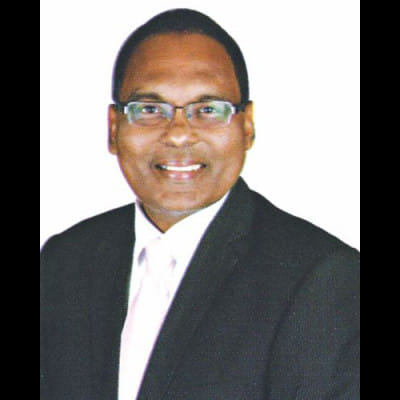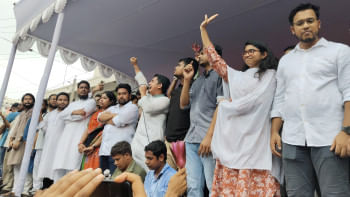'IS present in Bangladesh, carried out Dhaka attack'

An international security expert has said terrorist organisation Islamic State has presence in Bangladesh and that it carried out the Gulshan attack last year, something the Bangladesh authorities have repeatedly denied.
“The group that mounted the Holey Artisan attack is not the JMB. In fact, it is the IS,” Prof Rohan Gunaratna, head of International Centre for Political Violence and Terrorism Research in Singapore, told a regional conference in Dhaka yesterday.
Presenting his paper, “Deradicalisation of Militant: An Approach for Disengagement and Reintegration into Society,” Gunaratna said police should have immediately responded to the Holey Artisan attack and not wait for the commandos to come.
The terrorists in the café did not take any hostage or negotiate with the government. Rather they killed all of them they wanted to kill in the first phase of the July 1 attack, which killed 21 people, 17 of them foreigners.
The second phase was propaganda and the third phase showdown, said the professor, who is also a trainer for national security agencies, law enforcement authorities and military counter-terrorism units.
A press release issued by the police headquarters later in the day said they did not find any evidence of IS presence in Bangladesh. “There are some homegrown militants.”
The home minister and the inspector general of police on numerous occasions denied suggestions that IS had presence in the country. Prime Minster Sheikh Hasina described any such claims as local and foreign conspiracies.
Gunaratna, who teaches security studies at Nanyang Technological University, Singapore, praised the PM for her “zero tolerance” policy on militancy and terrorism.
But unfortunately, the Bangladeshi political leadership did not tell the truth that the group that is operating is the IS, he said.
Talking to The Daily Star after the conference, he said if Bangladesh identified the enemy as IS because it was IS, it would certainly help the law enforcers, military and intelligence services to prepare themselves to fight IS.
Asked why he thinks IS is operating in Bangladesh, the expert said JMB had no organisational existence. And the old JMB ideology has changed as well. “Now the ideology is driven by the IS.”
The group has emerged in Bangladesh through recruiting people who were once JMB members, but they do not call themselves JMB anymore, he said.
“You cannot call it JMB anymore because it has changed its constitution, its ideology, its targeting strategy,” said the expert who authored 17 books, including “Inside al Qaeda: Global Network of Terror” published from the Columbia University Press.
The group is currently working with the IS central command. It has even sent messages and propagated its operations to IS, which claimed responsibility of the Gulshan attack in its propaganda magazine Dabiq, he said.
He also argued that JMB did not kill foreign nationals such as Italian and Japanese. Nor did it kill Christians, Buddhists and Hindus.
“So, I want to share with you that the enemy in its new form must be identified and the government agencies and the public must understand the new face of terrorism so that they will be able mentally to respond to the new face of threat,” Gunaratna, who was invited to testify on the structure of al Qaeda before the 9/11 Commission, told the conference.
Born in Sri Lanka, he interviewed terrorists and insurgents in Afghanistan, Pakistan, Iraq, Yemen, Libya, Saudi Arabia and other conflict zones, according to his brief biography presented at the conference.
Replying to a question, he told The Daily Star that the Bangladesh government continued to call the group JMB because it thought that recognising it as IS would create some problems.
“I personally believe that it is so important to identify the new characters and the transformation of this group … identifying the problem and the enemy is 50 percent of the solution,” Gunaratna noted.
He stressed on the need for proper rehabilitation of the the terrorists and extremists now in custody and suggested that the Bangladesh government immediately start such programmes.
The biggest failure on the part of Bangladesh has been its inability to create a terrorist rehabilitation programme. “If terrorists are not rehabilitated when they are in prison they will pose a security threat, there will be regeneration of terrorists, and will go to community and infect and produce more terrorists.”
Chief of Counter Terrorism and Transnational Crime (CTTC) unit of DMP Monirul Islam also presented a paper highlighting the emergence of terrorist outfits in Bangladesh since its independence.
He reiterated country's strong stance against militancy.
The three-day conference titled “Regional Cooperation in Curbing Violent Extremism and Transnational Crime” began yesterday.
Organised by the Bangladesh Police and the Interpol, the conference seeks to build regional cooperation in curbing violent extremism and transnational crime.

 For all latest news, follow The Daily Star's Google News channel.
For all latest news, follow The Daily Star's Google News channel. 



Comments